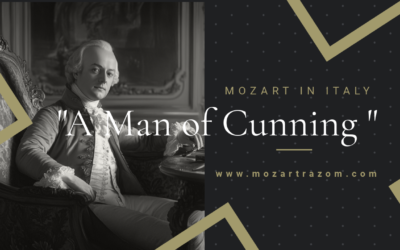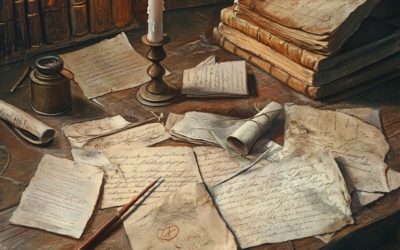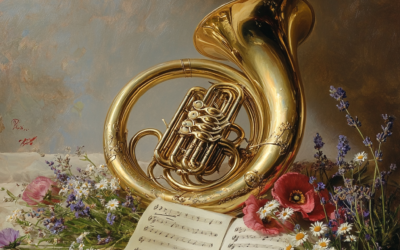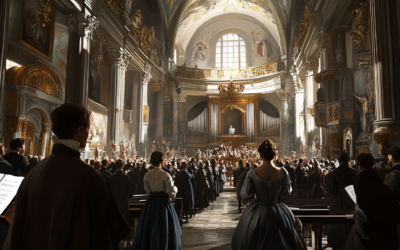Mozart’s Training
The Myth of Genius Shattered
The myth of Mozart’s genius is nothing more than a carefully crafted illusion, propped up by misplaced attributions and romanticised biographies. Behind his so-called brilliance lies the reality of his father’s dominating influence and a lack of formal education.
Mozart: The Fall of the Gods
This book offers a fresh and critical look at the life of Wolfgang Amadeus Mozart, challenging the myths that have surrounded him for centuries. We strip away the romanticised image of the “natural genius” and delve into the contradictions within Mozart’s extensive biographies. Backed by nearly 2,000 meticulously sourced citations, this work invites readers to explore a deeper, more complex understanding of Mozart. Perfect for those who wish to question the traditional narrative, this biography is a must-read for serious music lovers and historians.
"Mozart’s so-called maturation as a composer was more a product of Leopold’s craft than any external influence."
Mozart: The Fall of the Gods
When it comes to Wolfgang Amadeus Mozart, the myth of innate genius has been perpetuated for centuries. But if we strip away the romanticism and look at the facts, a different picture begins to emerge. Far from being a natural-born prodigy, Mozart’s musical abilities were meticulously shaped under the strict and controlling hand of his father, Leopold, and not by some divine inspiration or natural talent.
Mozart’s education was far from conventional. Unlike his father, who received a formal education at the hands of Jesuits, Amadé never attended school. He didn’t have systematic lessons in harmony, counterpoint, or fugue, nor did he benefit from the intellectual and musical training that other musicians of his time received in colleges or religious institutions. His schooling was entirely confined to his father’s relentless tutelage. Yet, for years, biographers have attempted to place Wolfgang under the tutelage of prestigious teachers like Padre Giovanni Battista Martini, despite the glaring lack of evidence.
Martini was a celebrated teacher, whose influence has been exaggerated in Mozart’s case. Theories linking Martini’s teaching to Mozart’s compositions have persisted for years. Musicologists have even gone so far as to analyse Wolfgang’s works before and after his visit to Bologna in 1770 to ‘prove’ the supposed influence of the famed didact. Yet, closer examination reveals these claims to be weak at best. It wasn’t Martini’s guidance that shaped Mozart’s sacred music, but rather the hand of his father.
Mozart’s masses, such as the K.115 and K.116, once hailed as evidence of his development under Martini, have since been attributed to Leopold, not Wolfgang. The more closely we examine the so-called “masterpieces” of Mozart, the more the cracks begin to show. The most embarrassing realisation, however, is that for all of Wolfgang’s supposed “originality,” his most lauded works in sacred music were little more than compositions reworked from his father’s drafts.
In fact, in 1953, Karl Pfannhauser discovered that the Kyrie K.221, Lacrimosa K.Anh.21, and another untitled fragment came from Johann Ernst Eberlin’s Requiem in C Major, a piece once very popular in Austria and certainly admired by the Mozarts. For many years, it was believed that Wolfgang had copied Eberlin’s Lacrimosa, omitting the nine-bar orchestral introduction. However, in 1961, Wolfgang Plath confirmed that all three pieces had actually been copied by Leopold, not Wolfgang. The 1964 Köchel catalogue still included these works under Mozart’s name, but classified them as music that Wolfgang had copied from other composers. Further evidence found after World War II confirmed beyond doubt that the Kyrie K.221 was indeed copied by Leopold.
In reality, the notion that Mozart’s church music owed anything significant to Martini is a fabrication. Wolfgang’s so-called maturation as a composer was more a product of Leopold’s craft than any external influence. This becomes particularly evident in the way Mozart mirrored the style of his father’s compositions and even used entire sections of his father’s work in his own pieces, like the K.115. The narrative that Mozart became “autonomous” through Martini’s teaching is, in fact, a convenient fantasy.
You May Also Like
A Revolutionary Encounter at Cremona Musica
Sharing insights on Mozart and the Neapolitan school at Cremona Musica, the premier global stage for music and culture.
#1 A Man of Cunning
In the end, Leopold Mozart’s life was a testament to survival in a world where his talents were often overshadowed by those of his more gifted contemporaries and his own son. While his “Violinschule” remains a notable contribution to music pedagogy, it is clear that Leopold’s legacy is as much about his ability to navigate the challenges of his time as it is about his musical achievements. His story is one of ambition, adaptation, and the lengths to which one man would go to secure his place in history, even if that place was built on borrowed foundations.
@MozartrazoM
Mozart’s Letters: A Legacy of Disappearances, Edits, and Forgeries
Mozart’s letters reveal missing originals, questionable authorship, and forgeries, adding complexity to his legacy.
The Curious Case of Mozart’s “Lullaby”
Though long credited to Mozart, the lullaby “Schlafe mein Prinzchen, schlaf ein” hides a murky history. Initially published by Nissen, Constanze’s second husband, it has endured as one of Mozart’s supposed works—despite a trail of doubts. In 1798, Constanze herself noted sending “another piece of Mozart’s in place of the lullaby,” raising questions about its origins. By the 20th century, researchers revealed it as the work of lesser-known composers, yet it remains deceptively tied to Mozart, its myth surviving through mere footnotes.
The Contradictions Behind Mozart’s Horn Concerto K.412
The authenticity of Mozart’s Horn Concerto K.412 remains hotly debated, as the work bears numerous contradictions in its manuscript history. The first movement may be original, but what about the rest? The inclusion of Franz Xaver Süssmayr and later editorial meddling raises serious questions about what we are really listening to when we hear this ‘Mozart’ concerto.
The Questionable Attribution of Mozart’s Offertorium K.34
Attributing Offertorium K.34 to Mozart is not just misleading, it reflects the careless methods used by 19th-century scholars to inflate his legacy. Without an autograph or solid evidence, this work should not be considered part of his output.”







